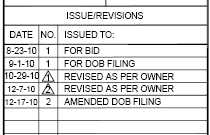You probably never thought of having both your commercial real estate Broker AND your Project Manager working with you to find suitable space for your new office. It sounds like an extra expense, and you’re going to need all your money to get started in your new location. What benefit would you get from your Project Manager anyway? What could they do that you can’t? Doesn’t that just complicate things? And doesn’t the broker just work for the landlord?
The most important thing you can do is to hire a Project Manager BEFORE a commercial real estate agent. The project manager gives insight – from a construction and adjacency perspective – for developing the proper space program that the broker will ultimately use to find potential spaces. Space Programming is much more than just how many offices, conference rooms, bull pen, storage space needs and loss factors. A project manager will engage your staff to understand your business, the space flow, future departmental adjacencies and develop the proper square footage. See previous article: Space and Adjacency Planning – Maximizing the Efficiency and Layout of Office Interior Space
What’s the difference between a real estate Tenant Rep Broker and a Tenant Rep Project Manager?
Real estate brokers help you find and negotiate the lease for your business. Project Managers help develop space programs and RFPs for brokers so that you don’t outgrow your space prior to moving in. Project Managers also guide you through lease administration, construction and develop a move plan for your relocation.
What’s the difference between a leasing agent and a tenant rep broker?
The leasing agent has the listing on the property and represents the interests of the building owner. A tenant representative or “tenant rep broker” represents the interests of the tenant in a lease transaction. Some agents work exclusively on listings, others will take on tenant representation engagements only, while others will work on both.
Decide on a brokerage relationship first:
One of the most common pitfalls a tenant makes is to tour properties without having decided on a brokerage relationship. If you plan on hiring a tenant rep broker, do so in advance of going on a property tour. If you plan on trying to find space on your own, make sure that any properties you have an interest in are shown to you by the listing agent (or owner, if the property is not listed). The reason this is so important is that in most cases, all an agent has to do is to bring the tenant to a property and he/she is legally entitled to a portion of the leasing commission as the “procuring” broker. A tenant may never see the agent again, but since that agent showed them the property, that agent will be paid a commission. These situations can also get real messy. For example, if later on that tenant hires a tenant rep, a commission dispute will likely occur if the tenant enters into a lease on a property that was shown to them by another agent.
Nobody works for free, including your real estate agent. However, you don’t pay them because your future landlord does, indirectly. Your future landlord pays a commission to his own leasing agent, who splits that commission with your agent. That’s why it’s free to you. Here are five major reasons WHY you should hire your own real estate agent and project manager:
The Search: On your own, you may hear about spaces opening up. However, your broker agent specializes in knowing what’s available, and knowing the neighborhood. They have their computer links to subscriber-only multiple listing services that show everything for lease and permit immediate comparison of size, price, features, and location.
The Landlord’s Rep – A Double Agent: The landlord’s agent has divided loyalty. You want what’s best for you, not a place they’re trying to unload from their inventory. Your needs are naturally secondary. Here are a few examples of the problems with NOT having your own agent and just trusting the landlord’s leasing agent:
a. The leasing agent is just trying to help the landlord fill his spaces.
b. His or her job is to convince you take what they have, not look elsewhere.
c. They’re not likely to suggest that you lease another broker’s spaces.
- They have a duty of loyalty to their landlord client.
- They would lose or reduce their commission.
d. They’re not likely to suggest that you get your own agent.
- They would have to split the leasing commission with your agent.
- They would lose their authoritative edge in your decision-making.
e. They’re unlikely to tell you about the problems with a building in their inventory.
- Problems might include location, coming Redevelopment, or structural flaws that your project manager would likely uncover.
- You might choose something without such problems, or negotiate better terms.
It’s much better for the landlord if you are docile and trusting, accept what they have to offer right there, and just sign the lease blindly.
What You Don’t Know: Your real estate agent will find you the best space and conditions for your business. In collaboration with your project manager, they know what would affect your business in a given location, which you could have overlooked. For example:
a. They know the problem buildings and some of the problem landlords to avoid.
b. The place might have structural defects, a bad layout, or be subject to flooding.
c. The building might not have been built to Code, causing delays and/or expenses.
d. The premises may need asbestos removal, or handicapped access bathrooms.
e. There may be a lot of crime in that neighborhood, or a deterrent police presence.
f. There may be a type of business nearby that would bother you or your customers.
g. There may be a new development coming that is compatible with yours, or not so.
h. Another competitor may be planning to move nearby, thereby dividing your local market.
i. The location may have repeatedly been proven bad for your type of business.
j. The local city government may be targeting your business for special restrictions.
k. The zoning may prohibit your type of business. When would have learned that?
l. The locality may have sign ordinances, curfews, or noise restrictions affecting business.
Obviously, these things could drastically affect your success at the given location. The list is by no means exhaustive. How would you ever have known of them, until it was too late? Your project team knows, or can find out these things and will tell you about them.
Discover more from Helping NYC & Long Island Commercial Tenants, Owners, and Developers
Subscribe to get the latest posts sent to your email.





